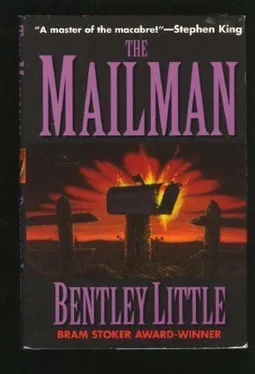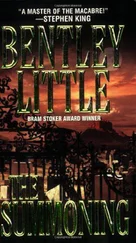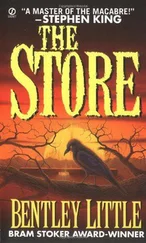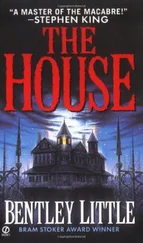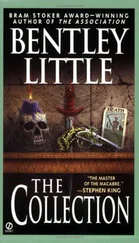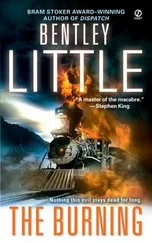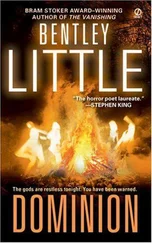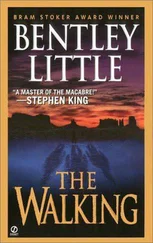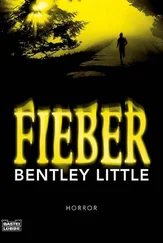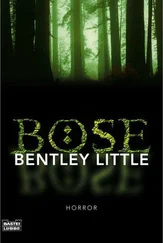Tritia stood up and Mike nodded to her. "Hello, Mrs.Albin ."
She smiled back. "Hello." She glanced at Doug. "I'm going to bed. You don't need me for anything out here, do you?"
He looked over at the clock. "It's only eight-thirty."
"I've had a busy day."
"Yeah," Doug said. "We all have."
"I'll see you later." She waved to Mike. "Good night, Mr. Trenton."
"Good night."
Doug pulled a chair next to the coffee table and motioned for Mike to sit down on the couch. The young policeman sat down tiredly, placing the photo album on the table before him. "Did you know Mrs. Ronda painted?"
"What?"
"She painted. You know, art. She was like an amateur artist."
Doug shook his head, puzzled. "No, I didn't. But what does that have to do with anything?"
The young policeman reached for the photo album. "We found some paintings in her closet. She kept them secret." He opened the book and Doug suddenly knew what was coming next. "I'm not supposed to show you this. This is police evidence. The chief said these paintings mean nothing, that if anything they're merely signs of a disturbed personality, but . . ." He looked up at Doug and pushed the open album across the table.
The paintings were indeed disturbing, done in bright garish colors, executed in an angular expressionistic style. Doug stared at the picture of the first canvas. A blue-uniformed man, carrying a jagged baseball bat, was treading on a field of anguished screaming faces. The sky was an apocalyptic red, the same color as the man's fiery hair. The man's face was a grinning white skull.
The next picture was of a monster, a hideous creature with a sharply fanged mouth that took up a full half of its malformed face. The monster held in its obscenely twisted claw a white letter. The street down which the creature was walking was an off-center path dividing identical rows of mailbox houses.
The pictures were all variations on a theme, personal and highly idiosyncratic depictions of a horrific mailman.
In the last, unfinished painting, the mailman was dressed as the Grim Reaper, and the blade of his scythe had shishkebabbed several women between their legs.
"She knew," Mike said.
Doug closed the album. "So what? Who doesn't know?"
"But she knew what was going to happen to her. Did you see those women?
Did you see that baseball bat?"
"Yes."
"Well, my idea is that if she knew, others do too. We just have to find them. It'll be tough. People aren't being real cooperative right now. But if we can find his next victim, we can stake him or her out and catch Smith with a sting operation."
It sounded good, but Doug did not think that the mailman was a killer who was methodically murdering people in town. He was something far worse than that.
Murder was merely one tool he used to get what he wanted. For all they knew, he had killed all the people he needed to kill and now he was moving on to something else.
Or perhaps he was going to kill them next.
"I think it's a good idea," Doug said. "I hope it works."
Mike frowned. "But I need your help. I was hoping you'd --"
"Sorry. I don't think I have any help to give."
"Sure you do --"
"You want my opinion?"
The policeman nodded. "Of course."
"Don't wait for him to do something else. Get him now. Charge him with anything, charge him with everything. If nothing sticks, fine. But at least you'll have kept him off the streets for a while. And maybe by that time, with the hearings and jailing, the Postal Service will have appointed someone else to the job and we can get rid of him for good."
"That's your plan?"
Doug leaned forward. "He's a fake. I called the main post office in Phoenix, and they have no record of him. When you guys called, their computer was mysteriously down and my story couldn't be corroborated. But he's not a real mailman. If you can get a postal inspector up here, if you can get the federal authorities to charge him, I think we'll be safe. The problem is, you're not going to be able to get through by mail or phone. You're going to have to go to Phoenix in person."
"No gas," Mike reminded him.
"That's why you throw his ass in jail until you can get someone up here, put him out of commission for a while."
"I don't know," Mike said.
"Well, then, don't throw him in jail. But at least try to get a representative from the post office up here. He's not a real mailman, but he recognizes the authority of the Postal Service. Hell, it's the only authority he does recognize."
"What makes you think so?"
Gooseflesh cascaded down Doug's arms as he remembered the mailman dancing on the ridge. "I just know."
"I still want to stake him out."
"Then stake him out. Tail him. Follow him wherever he goes. Maybe you'll be able to catch him that way."
"But you don't think so?"
"I don't think so."
Mike stood up, picking up the photo album. "I'm on my own on this, you know. The department's not behind me. The chief would shit if he knew I was even talking to you."
"Why?"
"I don't know. But I do have a few others with me. Tim, of course. And Jack and Jeff. We all know what's going on."
"I think you should nab him now."
Mike walked to the door. "I'll think about it." He turned on the porch.
"It would mean my job, though."
"It may mean your life if you don't. Or mine."
"Maybe he'll just go away."
Doug smiled grimly. "No. That's what I was hoping, too. But that's the one thing he won't do: he won't go away."
Mike walked out to his car, got in, and backed up the drive, and Doug stood on the porch until the policeman's taillights were gone and the noise of his engine had faded into the sounds of the night.
43
But Doug was wrong. The mailman did disappear. He was gone the next day, and when Doug drove by the post office in the afternoon, it was closed. At the police station, Mike said that SmithTegarden , the officer assigned to man the speed trap at the edge of town, had seen John Smith's car heading toward Phoenix.
The next day passed, and the next, and there was still no sign of him.
When the weekend rolled by and Monday arrived with the post office remaining closed, Doug began to relax.
It looked like it was over.
The mailman was gone.
44
The morning dawned clear and cool and sunny, the first August merging of the disparate weather trends that would eventually crystallize into fall. Doug awoke early, showered, shaved, and went out to check the mailbox. He was gratified to find that it was empty.
By the time he'd walked back to the house, Tritia was up and making coffee. There was annoyance on her face as he said "Good morning" to her, and when he repeated the greeting, she refused to respond, unintelligibly grunting some sort of reply.
Doug turned on the television, and the familiar set of the NBC _News at Sunrise_ blinked into existence. There had been no problems with the electricity since the mailman left, and gas, water, and phone services had continued uninterrupted. Life, it seemed, was settling back into normalcy.
Billy was still asleep, but Tritia ordered Doug to wake him and make him come down for breakfast. She was making Spanishomelettes for each of them, using vegetables she had grown in the garden, and she refused to suspend her culinary efforts until Billy graciously decided that it was time for him to awaken. "Get him up now," she said.
They ate breakfast together, and Tritia announced that this morning they were going to go to the store and do some serious shopping. The cupboards were nearly bare, as were the refrigerator shelves, and she had a stack of coupons whose expiration dates had nearly arrived. She began making out a list of items they needed while Doug washed the dishes and Billy dried.
Читать дальше
